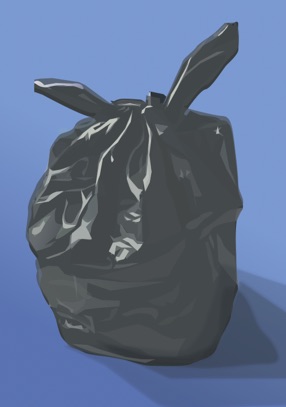RUBBISH
The black bin bag was first introduced by Hitchin Council in Hertfordshire in 1960 to make refuse collection faster and more hygienic and it is now synonymous with rubbish. Since 1960 our attitude to the waste in the bag has changed and I was interested to discover what happens to it after it leaves the doorstep.
UK Government statistics show that we threw away 26.4 million tonnes of household waste in 2018. Of this almost 44% was incinerated, with 10.3% went to landfill [which had reduced to about a third of it’s 2000 level].
DEFRA’s 2020 report on recycling shows that reuse, recycling and composting fell by 1.5% to 44% n England. Whilst Northern Ireland dipped from 51% to 49% and Scotland also fell from 45% to 41%. with only Wales showing a growth to 56.5%. Of the 350 Local Authorities in England. Barrow in Furness had the worst rate of only 18% whilst St Albans was the best at 64%.
The UK as a whole saved 79% of paper and card, 71% metal, 67% glass, and 70% plastics. Unfortunately this doesn’t mean that these quantities are recycled as some 2/3rds of the plastic waste and 1/2 of the paper is exported, mostly to Turkey and the far east. where significant quantities are being dumped rather than processed.
Increasing amounts of plastics and paper in the UK are therefore being burned in Incinerators that create heat, which is turned into steam to run turbines and generate electricity. The average plant produces about 1200 MWh per day from the 2,200 tons of waste it processes. However the system is generally accepted to be inefficient and polluting, producing toxins as well as significant amounts of CO2. The process also leaves a residue of highly toxic fly ash which also has to be disposed of.
A growing number of the landfill sites are now sophisticated, engineered facilities that hold the waste in large scale, sealed areas which are contoured to blend with the natural landscape. A site in Scotland is currently extracting methane produced from bacterial action on food waste. From it’s 300 mini wells it collects 3 to 4 times more energy than a wind turbine, and it is doing so 24/7.
Pre millennium sites, are however a cause for concern. A recent BBC team found batteries leaching toxic metals into the water course. and a number of these sites are in danger of releasing waste into rivers and so into the ocean where they are contributing to the current high levels of marine pollution. Not all of the news however is worrying as the BBC programme also discovered that these sites have a potential for future miners with companies exploring ways of gathering, sorting and reclaiming some of the waste.
Sources
Century Makers /Orion Publishing, UK Govenment Statistcs, British Plastic Federation, BBC Landfill Documentary



I Care
Products










